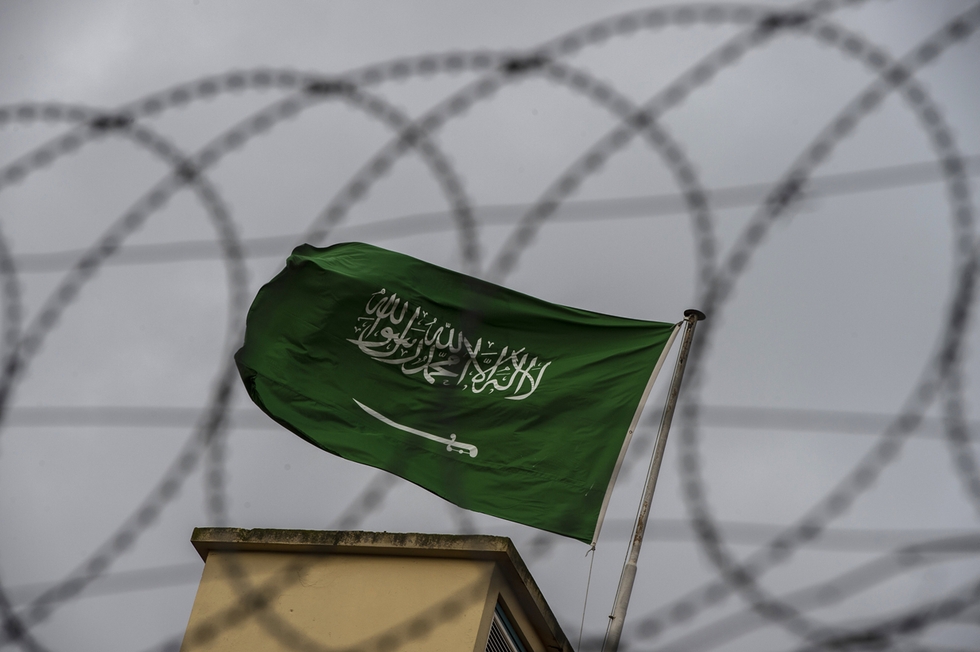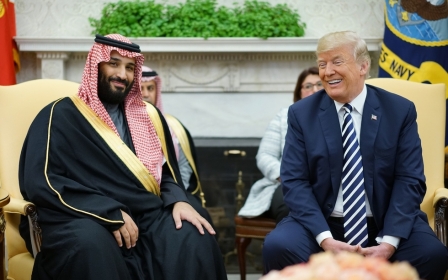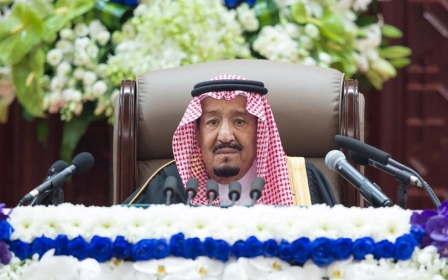Saudi human rights activists tortured, sexually harassed in prison: Amnesty

Several detained Saudi human rights activists have been subjected to torture, sexual harassment and other inhumane treatment in a prison in Saudi Arabia, Amnesty International said on Tuesday.
Citing three separate testimonies, the human rights group said the activists, some of whom are women, were tortured by electrocution and flogging, which left "some unable to walk or stand properly".
The mistreatment occurred inside Dhahban prison in Jeddah, Amnesty said, against activists who have been detained without charge since May.
“Only a few weeks after the ruthless killing of Jamal Khashoggi, these shocking reports of torture, sexual harassment and other forms of ill-treatment, if verified, expose further outrageous human rights violations by the Saudi authorities,” Lynn Maalouf, Amnesty International’s Middle East research director, said in a statement.
MEE could not independently verify Amnesty's findings on Tuesday.
The human rights group also did not reveal the identities of the activists it said have been subjected to mistreatment inside the Saudi prison, nor did it say who had provided the testimonies it collected.
However, Amnesty's report comes amid heightened pressure on Saudi Arabia - and on the country's de facto ruler, Crown Prince Mohammed bin Salman, in particular - over the murder of Khashoggi, a prominent Saudi journalist, in the country's consulate in Istanbul on 2 October.
Activists forced to hang from ceiling, Amnesty says
According to the testimonies, Amnesty said one activist was forced to hang from the ceiling, while one of the detained women was subjected to sexual harassment "by interrogators wearing face masks".
The human rights activists exhibited medical issues as a result of their mistreatment in detention, Amnesty reported, including an uncontrolled shaking of the hands and marks on their bodies.
One of the detained female activists has also tried to commit suicide multiple times, Amnesty said.
Several Saudi human rights advocates were detained in May as the Saudi government sought to stifle dissenting voices in the Gulf kingdom.
The arrests followed an earlier crackdown on clerics, intellectuals, and activists in September 2017 in an apparent bid to silence potential opponents of the Saudi crown prince, also known as MBS.
Last June, the Saudi government ended a decades-old ban on women driving cars as part of a bid to diversify the economy away from oil. However, while many hailed the end of the ban on women driving as proof of a new progressive trend, it has been accompanied by a crackdown on dissent.
These shocking reports of torture, sexual harassment and other forms of ill-treatment, if verified, expose further outrageous human rights violations by the Saudi authorities
- Lynn Maalouf, Amnesty International
A Saudi government communications office did not immediately respond to Reuters' request for comment on the Amnesty report Tuesday.
Riyadh has in the past denied using torture and said that arrests were made on the basis of suspicious contacts with foreign entities and offering financial support to "enemies overseas".
Several of the detained activists are being held in detention without charge and without legal representation, Amnesty said. They were also held incommunicado in solitary confinement for the first three months of their detention, the group said.
Those detained in Dhahban Prison include Loujain al-Hathloul, Iman al-Nafjan, Aziza al-Yousef, Samar Badawi, Nassima al-Sada, Mohammad al-Rabe'a and Dr Ibrahim al-Modeimigh, according to the human rights group.
“The Saudi authorities must immediately and unconditionally release detained human rights defenders who are being held solely for their peaceful human rights work and launch a prompt, thorough and effective investigation into the reports of torture and other ill-treatment with the view of holding those responsible to account,” said Maalouf.
New MEE newsletter: Jerusalem Dispatch
Sign up to get the latest insights and analysis on Israel-Palestine, alongside Turkey Unpacked and other MEE newsletters
Middle East Eye delivers independent and unrivalled coverage and analysis of the Middle East, North Africa and beyond. To learn more about republishing this content and the associated fees, please fill out this form. More about MEE can be found here.




